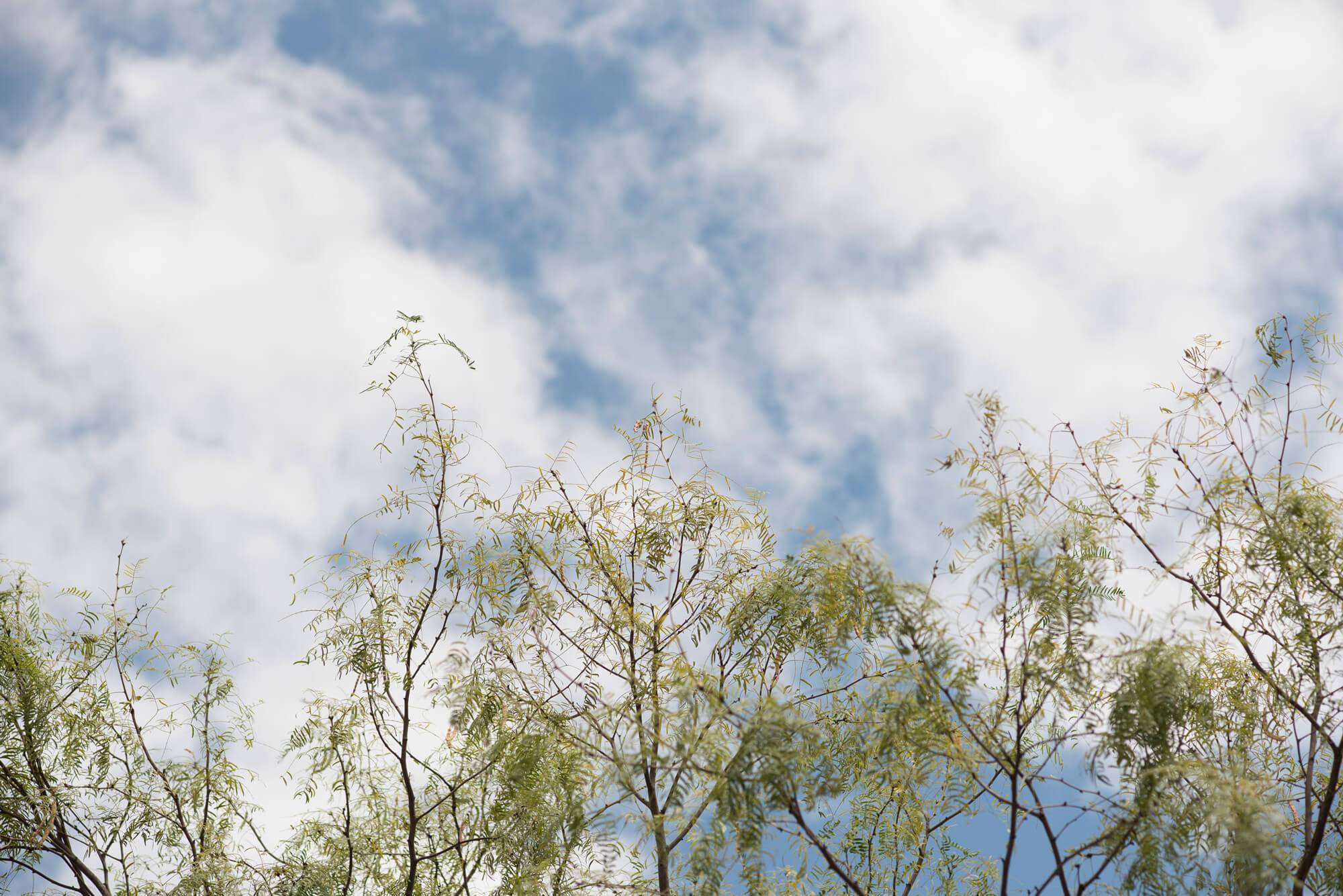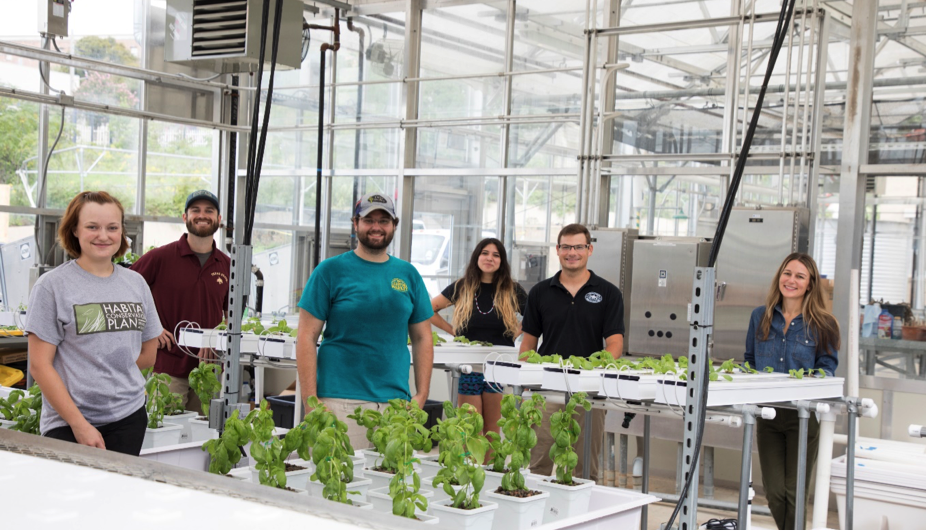Learning Community Grants
The College of Applied Arts prioritizes students' ability to engage with hands-on learning and research. Through the College, the Department of Agriculture offers several Learning Communities, opportunities for students to work directly with faculty on developing and conducting their own research projects.
Developing Innovative Crop Inputs while Recovering Food Waste and Addressing Market Opportunities (2019-2020)
Dr. Nicole Wagner
Innovative biotechnologies in the agricultural industry have witnessed significant recent growth, especially with increasing consumer demand for organic and local foods. This project investigates food waste recovery methods for development of novel biofertilizers to be used in local organic crop production. Biofertilizers developed in the laboratory will be analyzed for nutrient concentration and beneficial microbial activity, and then will be applied to crops to assess yield and plant health. Student researchers will gain knowledge of real-world food system challenges for which innovation is needed and entrepreneural opportunities exist. Specifically, students will explore sustainable fruit and vegetable crop systems to meet growing consumer demands, reducing pesticide and synthetic fertilizer use through the application of microbial rich biofertilizers, and recovering nutrients through municipal food waste streams. Six undergraduate researchers will be in a peer-learning group that includes five graduate students; over 200 students will be exposed to aspects of this research through in-class demonstrations.
Determining Consumer Preferences for Food safety in Their Food Purchase Decisions (2019-2020)
Dr. Pratheesh Omana Sudhakaran
News about food safety incidents is increasing in recent years and due to the advancement in telecommunications, the consumers are getting the information in real time. Government agencies such as FDA are coming up with measures to curb food safety incidents and track the food consumers eat. Since consumers are exposed to both negative and positive information regarding food safety, it is critical to understand consumers’ perception and preferences on these issues. As a preliminary step, this study would like to collect information in Texas, particularly from Texas State University (TxState). However, the research topic has a national potential. The goal of the proposed project is to understand consumer preferences in terms of food safety issues and food safety regulations. To achieve this goal, the study will try to understand (1) Consumer perception of existing food safety issues and control measures in the market; (2) Determine the consumers’ willingness to pay for safe products. An economic experiment will be developed to solicit consumer purchase preferences and to determine factors that affect their product purchase. The data from the purchase behavior and knowledge about the food safety regulation questions will be used to identify the different attributes or factors the consumers consider while food purchase, using multivariate regression analysis. Moreover, the answers from the experiment questions will be used to analyze the willingness to pay for each of these attributes using discrete choice regression analysis. The benefits from this research project are multi-faceted with its impacts on undergraduate education enhancement through research, the impact of the outcome on producers, and impact of research outcome on the policy. Through this project undergraduate students at TxState particularly, 4 undergraduates students majoring in agribusiness will be hired to conduct the research project who will be given training in economic experiment design, data collection, data management, and data analysis. Moreover, the research project has an indirect and bigger impact on the student population of TxState. Students from AG 3352, AG 3317 will be used as volunteers in testing the economic experiment which will introduce research concepts to them. Moreover, these students from these larger learning communities get exposed to the data collection process and research ethics. The results from this preliminary study will be used to write external research grant from the federal agencies such as US Department of Agriculture, National Science Foundation, and National Institute of Health; this research comes under one of the research priorities of these agencies.
Increasing Sustainability in Hydroponics by Recovering Food Waste and Addressing Market Opportunities (2018-2019)
Dr. Nicole Wagner
Based on the need for improving water and nutrient resource efficiency in food systems, coupled with the growing consumer demand for local and organic products, this project explored the feasibility of fruit and vegetable crops grown in greenhouse-based hydroponic systems in Central Texas. Hydroponic systems offer advantages over field-based farming methods, such as 90 to 95 percent less water use, increased production on less land area per year, crop production on nonarable land, and adaptability to extreme weather. Additionally, indoor hydroponic production in or near urban areas has the potential to reduce food miles, which helps to lower food waste by decreasing the amount of time from harvest to consumption, while potentially increasing nutrition content and flavor. This project explored the ability of hydroponic production to create market opportunities, and focused on if locally sourced nutrients, such as from composted food waste, can be used as organically sourced nutrients.
Students had exposure to the transdisciplinary aspects of this project during crop and soil science courses, such that approximately 216 undergraduate students were impacted during the 2018- 2019 academic year.
- 10 undergraduate students constructed eight hydroponic systems with automation equipment.
- 5 undergraduate students presented at the Texas State University Undergraduate Research conference.
- 1 undergraduate student received the 2019 Undergraduate Research Fellowship.
- 2 undergraduate students submitting a paper to the Texas State Journal of Undergraduate Education.
Undergraduate Research Projects:
- De Leon, G. Evaluating Suitable Crops for Vertical Hydroponic Systems.
- Glasscock, M. Effects of Increased Dissolved Oxygen Concentration on Beneficial Microbiology in Hydroponic Systems.
- Godoy, L. Evaluating Nutrient Analysis Equipment in Hydroponic and Automatic Systems.
- Gutierrez, M. Assessing Vermicompost Tea in Hydroponic Food Production.
- Lash, K. Evaluating Four Strawberry Cultivars for Indoor Production in Central Texas.
- Lauterbach, K. Exploring Nutrient Content of Hydroponically Grown Microgreens.
- McAfee, J. Assessing Vermicompost Tea in Hydroponic Food Production.
- Ovalle, A. Comparing Post-Harvest between Local Hydroponic Strawberries with Non-local Hydroponic and Field-Grown Strawberries using Refractometry.
- Soza, M. Assessing Demand for Locally Grown Produce; Growing Pink Oyster Mushrooms (Agaricus Bisporous) within a Hydroponic System.
- Wendt, E. Growing Pink Oyster Mushrooms (Agaricus Bisporous) within a Hydroponic System.

